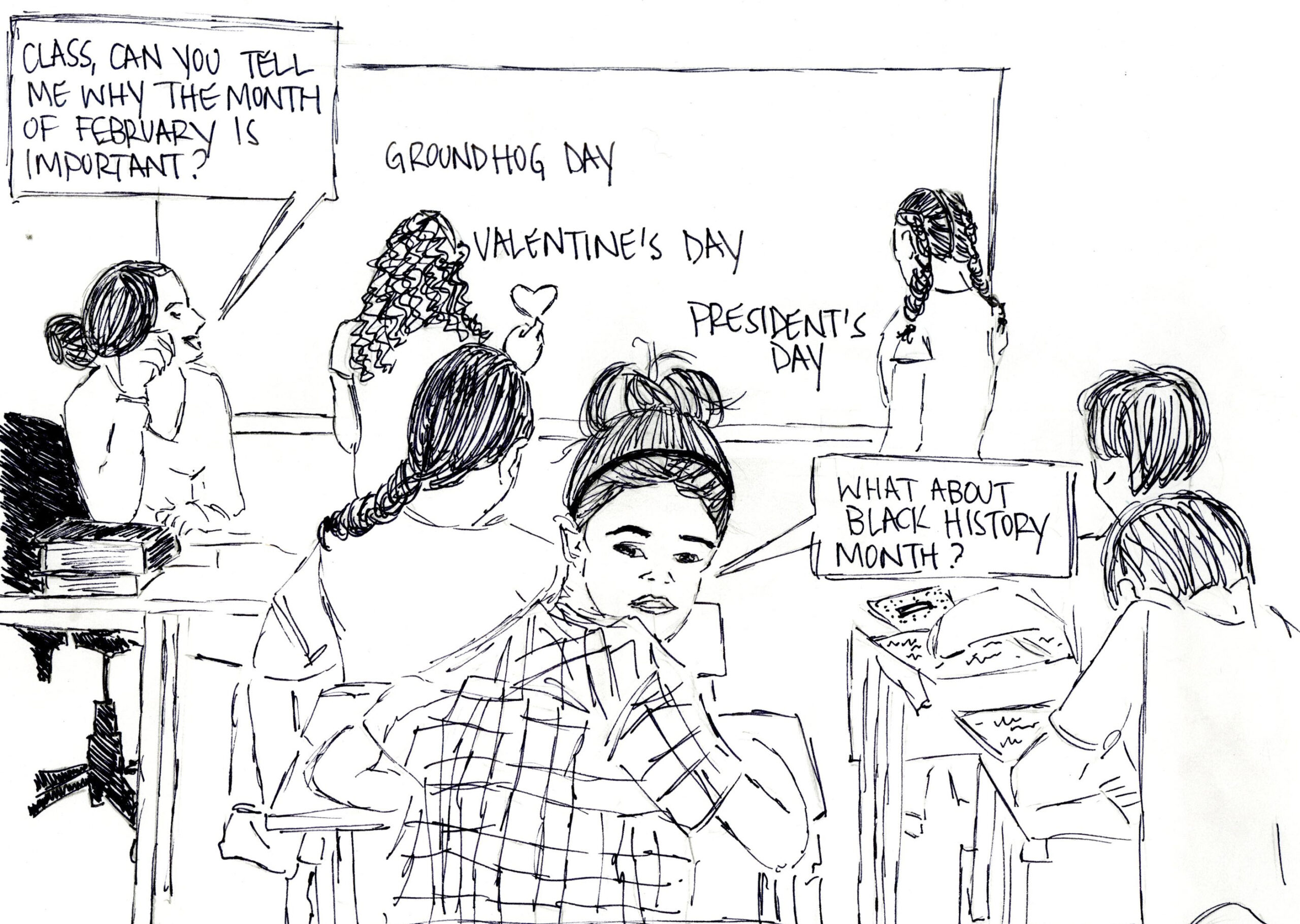Transforming Our Views on Black History Month
It is safe to say that Black History Month is a dark shadow of what it used to be. What once was a month filled with pride and knowledge is now a forgotten tradition. It is an afterthought. When we think of February, we engross ourselves in chocolates and flowers as we prepare for Valentine’s Day. Hell, even groundhogs get more attention than Black History Month. According to Google Trends, the term “black history month” has dropped more than 50 percent in searches since 2004. Why is that?
Black History Month is a celebration of black culture and its influence on present-day society. It should be a reminder of the struggles and triumphs that Americans have faced in the past and how much we have overcome. It is vital to the progression of our nation for my generation to revive Black History Month and transform the way that we think about it.
Although Black History Month is a step toward bridging the gap between what black culture is and how we perceive it to be, we still have a lot of work to do. We need to understand that black culture is not just exclusive to black people. It is available to everyone. It is our history. It influences and affects all races of people in America and around the world. We should focus on the bigger picture of how black culture has helped evolve our current culture.
Let us start a path of knowledge to educate ourselves of our history, which follows us throughout the year of 2014 and is not exclusive to the month of February. We should carry this information with us throughout the calendar year and expand on it.
Growing up in Atlanta, GA, I attended a predominantly black high school with little diversity. I was immersed in black culture, ranging from literature to fashion. Maya Angelou, Langston Hughes and Toni Morrison dominated my school’s literary content, while other novels—parts of the American literary canon—such as “The Great Gatsby,” went untouched. My principal and teachers prided themselves on being alumni of the most elite Historically Black Colleges and Universities in the country and members of respected black sororities and fraternities such as Alpha Kappa Alpha, Delta Sigma Theta and Omega Psi Phi. Morehouse College, Spelman College and Howard University were the prime ivy league college selections of my classmates and where most of them attended following graduation. I have visited Martin Luther King Jr.’s childhood home on more class field trips than any other place.
When February arrived, there was no need to put an emphasis on black history because we celebrated it all year round. I now realize how special that experience was.
At The New School, I am amazed at how little students truly understand about black culture. Besides slang, fashion and music, our community struggles to comprehend the essence of what traditional black culture is and how it has evolved. Only a superficial understanding of black culture is showcased in most media. I cannot count the number of times I have mentioned authors like Zora Neale Hurston (“Their Eyes Were Watching God”) and Daniel Black (“The Sacred Place and Perfect Peace”) in my literary studies classes, only to be met with bewildered glances and stares. No one knows what a Historically Black College and University is, but somehow everyone can tell you (and in some cases show you) what it means to act ‘rachet’ and ‘twerk.’
We, as a culture, are collectively responsible for dictating what is popular or unacceptable. If we continue to glorify behaviours that create more stereotypes and neglect to credit true culture contributors, then we are failing to achieve the results of awareness and progression that Black History Month represents in the first place. One way we can repair the damage that has been done is by filtering out the content that we choose to make available on our communicative platforms.
Social media sites such as Twitter, Instagram and Facebook can be used in a positive way by educating friends and followers on black history and culture. This year, I plan to use my own social media platforms to talk about how black history has affected culture today and examples of what black history will be for generations to come. It does not have to be about reciting old facts that we have all heard throughout adolescence. It does not have to be strictly a celebration of black people. But Black History Month should be a reminder of the struggles and triumphs that we have faced and overcome.
Tené is a junior majoring in Journalism + Design with a minor in Culture + Minor at Lang. An Atlanta native, she moved to New York City with the desire of pursuing journalism as a career. She enjoys writing about pop culture, music, sports, and wrestling. She hopes to write for a magazine publication one day and ultimately, start her own magazine. Some of her favorite publications are Vibe, Complex, Bleacher Report, and Vice. In her spare time, she likes to listen to music (Kanye West, Rihanna, Aaliyah, Outkast, etc.), shop at thrift stores and American Apparel, and watch reality TV.








Leave a Reply